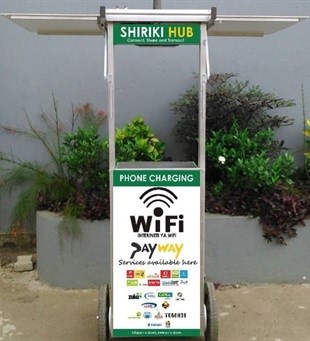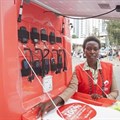Subscribe & Follow
#AfricaMonth
Rwandan startup Ared expands micro-franchising model to Uganda

The solar kiosks are known as the Shiriki Hubs and are run by women and differently-abled individuals on a micro-franchise model. The hubs allow citizens, belonging to lower income groups, to charge their mobile devices, buy airtime, connect to Wi-Fi to access the internet, to make digital payments as well as other intranet services offline.
Female-led expansion
This expansion into Uganda was funded by US-based impact investor Gray Matters Capital under its gender lens sector agnostic portfolio, coLABS.
With its funding mandate met after piloting in Uganda for a little more than a year and achieving impact with 48 kiosks in Rwanda – of which 41 are run by women and two by people with disabilities – Ared now aims to have 100 micro franchisees serving around 3,000 customers per month by 2020.
The startup presently provides digital services and meets the connectivity needs of 55,000 customers in Rwanda and Uganda.
Uganda and beyond
Giving insights into his company’s development strategy for Uganda, Ared Group founder and CEO Henri Nyakarundi said: “We will work with partners, whom we call as area developers, who will franchise our model in the different areas of Uganda. Our focus is on NGOs and private sector enterprises whom we’d like to be roped in. They will buy the hardware for the kiosk, train micro franchisees and use our licensed software. Ared will, of course, support them along the way.”
Apart from leasing the kiosks via the franchise model, Ared is also planning to partner with telecom service providers in Uganda to build distribution channels at the community level.
While the rationale behind entering Uganda was the similarity of culture and proximity to Rwanda, Ared will be embarking on a far more challenging journey next year.
“We will be looking to target countries in western Africa next year. While the cultural ethos may differ, what remains common pan-Africa is the unreliability of power supply. It is this adversity that we’d like to convert into an opportunity,” said Nyakarundi announcing that Ared has begun working on a pilot in Ivory Coast.





